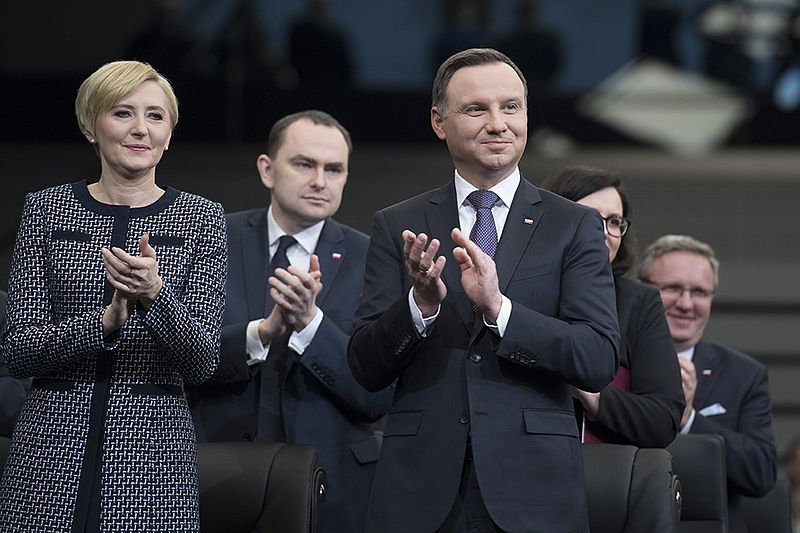The presidential runoff in Poland this Sunday will determine the country’s path for the next five years. To a large extent, it is a choice between forward-looking and backwardness, openness and xenophobia, tolerance and exclusion, civil society and its enemies, European and national perspective, the separation between church and state and parochiality. In some sense, it is a choice between liberalism and conservatism.
Poland’s incumbent president, Andrzej Duda, a nationalist and conservative, topped the first round of the presidential election on June 28 with 43.5%.
However, on July 12 he will go up with his liberal challenger, Rafał Trzaskowski, Mayor of Warsaw, who got 30.5% in the first round. Numerous polls suggest that the race is too close to call.
On the last stretch, the most crucial for the candidates seem to be mobilizing the electorate with pro-turnout campaigns and endorsements by nine other candidates from the first round.
The most powerful endorsement may be the one from Szymon Hołownia, a journalist, publicist, celebrity, so-called a citizens’ candidate, who came third in the first round with nearly 14%. On the political spectrum, Hołownia’s voters are closer to those who have voted for Trzaskowski.
Less predictable is how voters of Krzysztof Bosak will vote. Bosak came fourth in the first round (6,8%). Some of them might choose Duda, others Trzaskowski. However, some, those on the far-right political spectrum, might stay at home.
On the other hand, voters of Robert Biedroń (The Left) and some voters of Władysław Kosiniak-Kamysz (Polish People’s Party) are expected to vote for Trzaskowski.
In the last week, it seemed that Trzaskowski is gaining public support. At the same time, Duda has already reached the glass ceiling that supports him and the ruling coalition in Poland (Law and Justice, The Agreement and The United Poland), which goes by The United Right .
The overlaying question is whether Duda will lose some of these votes. His staff is playing the old party tricks, which moved the candidate further to the right, as Duda’s campaign spreads hate speech and threaten Poles with LGBT “ideology”, withdrawal of social privileges, “the Germans”, elites and the “hell on Earth” that the liberal candidate may establish if he wins.
On the other hand, Trzaskowski signed a tolerance declaration, called for an inclusive society, and vowed to stop further erosion of judicial independence under Law and Justice.
Further, Trzaskowski promises, among others, a minimum tax-free wage, creation of local infrastructure development centers, protection of minority rights, and not to touch the social privileges introduced by the current government.
He also signed 21 demands of The Green regarding energy transformation, nature protection, animal protection, etc. However, the ruling camp – mainly through highly politicized national media – is trying to persuade the voters that Trzaskowski simply cannot be trusted.
Duda screams a lot, waves his hands, makes scary expressions, appears angry. He proclaims his defense of the family, sovereignty, and recently even protection against vaccination. He screams about national pride, which applies to all of his ideas. The current president is also supported by prime minister Mateusz Morawiecki, praising Duda’s virtues and public engagement.
However, Duda loses popularity because of his wife’s silence, refusal to appear in open the debate with Trzaskowski, and other inexplicable acts, such as the recently revealed presidential pardon of a man convicted of pedophilia.
The conservative-liberal choice is ahead of Poles. The divide is deep, both between the candidates and the population. The ballot on Sunday will reveal on which side it swings.
The article was published at Časnik Večer on July 11, 2020.
The article is syndicated by 4Liberty.eu Network.



